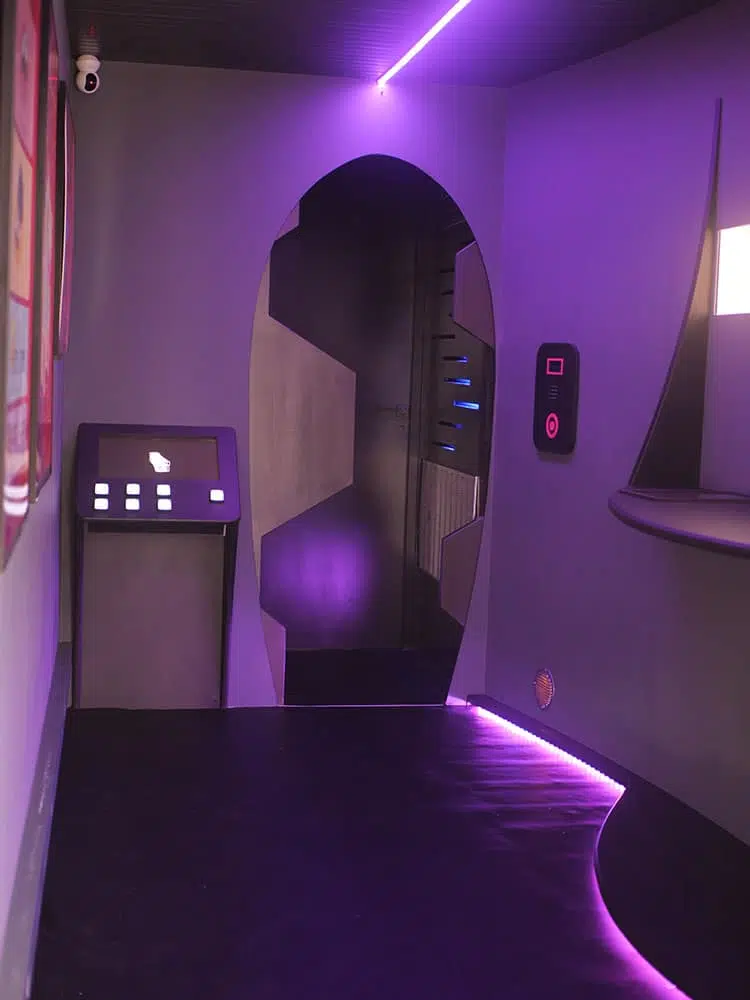Escape Room Orlando: Challenge Your Mind and Have a Blast with Friends
Wiki Article
Explore Why Escape Rooms Are Fun and Deal a Distinct Way to Bond With Pals and Family
Escape spaces have actually arised as an exciting form of home entertainment, using a mix of immersive narration and psychological excitement that is both challenging and gratifying. What precisely establishes retreat areas apart as a bonding experience?
Immersive Narration
While the concept of retreat spaces might originally appear straightforward, it is the immersive narration that genuinely establishes them apart. These experiences are diligently developed to deliver individuals right into one more world, weaving compelling stories that captivate and engage. From the moment players enter the room, they are enveloped in a very carefully crafted ambience, complete with complex information, audio effects, and thematic elements that serve to improve the story.Each retreat room features a distinct plot, usually involving a mission or mystery that participants need to address within an established duration. The story is not just a background however is indispensable to the experience, affecting the layout of puzzles and the layout of the room. This narrative-driven method guarantees that every aspect, from the hints to the decoration, adds to the unfolding story, producing a cohesive and immersive environment.
Additionally, making use of advanced technology and interactive features further deepens the immersive experience. For instance, electronic user interfaces, boosted fact, and sensory impacts can make the story come alive, allowing individuals to really feel as though they are genuinely component of the unfolding drama. This immersion fosters a feeling of exhilaration and seriousness, elevating the overall satisfaction of getaway rooms.
Psychological Excitement
Engaging in retreat spaces provides individuals a special form of psychological excitement that challenges cognitive abilities in revitalizing and diverse means. These immersive experiences need individuals to fix elaborate puzzles, understand codes, and believe seriously under time restrictions. This setting promotes enhanced analytical skills, as participants must navigate a collection of complicated obstacles that need sensible reasoning and imaginative thinking.
Retreat rooms commonly incorporate a range of puzzle types, from mathematical formulas to linguistic riddles and spatial recognition tasks. This range ensures that different cognitive features are engaged, offering a thorough mental workout. Solving a cipher may sharpen logical skills, while a physical puzzle may boost hand-eye sychronisation and spatial thinking. The requirement to shift in between different sorts of assuming keeps the mind nimble and engaged.
In addition, the time-sensitive nature of retreat rooms adds an element of pressure that enhances cognitive performance. Participants are encouraged to think quickly and efficiently, improving their ability to process information and make decisions rapidly. This heightened state of mental task can bring about raised emphasis and sharper cognitive capacities, making retreat spaces not only an amusing diversion however also a valuable exercise for the mind.
Synergy and Participation
Unforgettable Experiences
Often, among one of the most compelling facets of escape spaces is the production of memorable experiences that stick around long after the game has ended. The immersive nature of escape spaces, with their detailed puzzles and involving stories, provides participants with a feeling of success and sociability that is tough to replicate in other social tasks. These experiences come to be valued memories, frequently recounted with excitement and fond memories.The collective initiative needed to resolve the challenges fosters an one-of-a-kind sense of unity among individuals. Pals and family members are provided the possibility to function with each other in a high-pressure, yet fun environment, enhancing bonds and improving interaction abilities (orlando escape room). The shared success and also the periodic failings add to a cumulative feeling of accomplishment and happiness
In addition, the thematic variety of retreat areas makes certain that each experience is distinctive. Whether browsing a haunted manor or deciphering clues in a spy-themed setup, the selection maintains the exhilaration fresh and the memories brilliant. This range not only accommodates different interests yet likewise ensures that each browse through to a getaway area is a special adventure.
Basically, getaway rooms use memorable experiences that construct enduring connections and supply stories to be valued for several years to find.
Final Thought
Escape areas use an unique avenue for bonding through their immersive narration, mental excitement, and dependence on team effort and cooperation. These components jointly create an electrifying setting that challenges individuals, promoting cognitive growth and enhancing connections. The excitement of overcoming intricate issues with each other leads to memorable experiences and an extensive sense of achievement. Escape spaces arise as a delightful and distinct activity, integrating amusement with the advancement of crucial social and cognitive skills.
Building on the structure of teamwork and teamwork, the thrill of the difficulty in escape spaces supplies participants an electrifying experience that evaluates their discover this analytic abilities and mental skill - orlando escape room.In addition, the carefully crafted complexity of retreat rooms guarantees that no 2 experiences are alike.Often, one of the most compelling elements of retreat rooms is the creation of unforgettable experiences that stick around long after the game has wrapped up.In addition, the thematic variety of escape rooms makes sure that each experience is distinctive
Report this wiki page